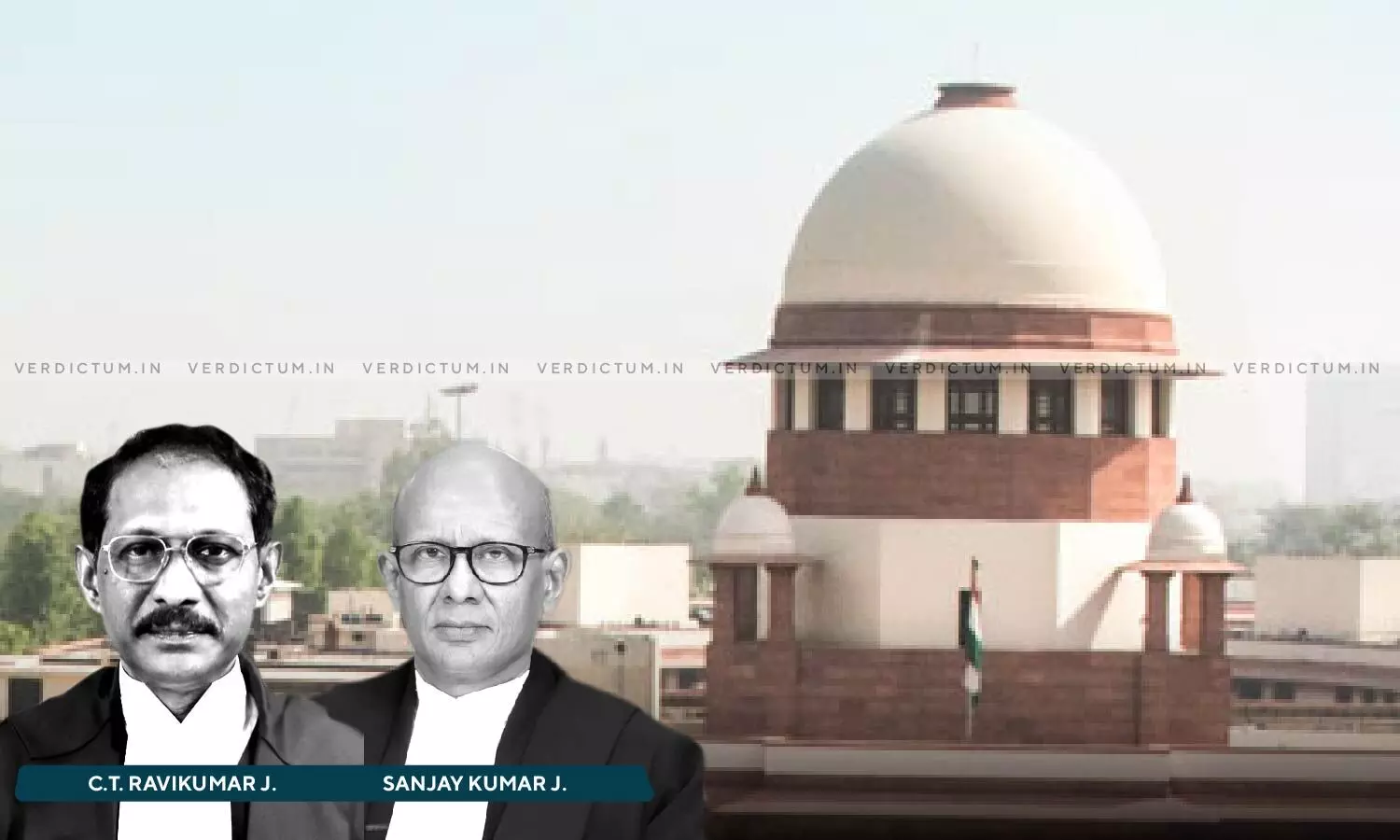
Section 141 NI Act| Mere Management Of Affairs Of Company Does Not Make Person Liable For Its Conduct: SC Reiterates
 |
|The Supreme Court reiterated that merely because somebody is managing the affairs of the company, per se, he does not become in charge of the conduct of the business of the company or the person responsible for the company for the conduct of the business of the company. The appellant had filed an appeal against an order passed by the High Court, related to a complaint filed under Section 138 read with Section 141 of the Negotiable Instruments Act, 1881 (NI Act). The appellant argued that the complaint against him should be quashed because he had resigned from the partnership firm before the issuance of the cheque in question and because the complaint lacked mandatory averments required under Section 141(1) of the NI Act.
A two judge Bench of Justice C.T. Ravikumar and Justice Sanjay Kumar relied on a recent judgment of Ashok Shewakramani & Ors. v. State of Andhra Pradesh & Anr., 2023 INSC 692 and reiterated that, “Thus, in the light of the dictum laid down in Ashok Shewakramani’s case (supra), it is evident that a vicarious liability would be attracted only when the ingredients of Section 141(1) of the NI Act, are satisfied. It would also reveal that merely because somebody is managing the affairs of the company, per se, he would not become in charge of the conduct of the business of the company or the person responsible to the company for the conduct of the business of the company.”
Advocate Wills Mathews appeared for the Appellant and Advocate Vipin Kumar Jai appeared for the Respondents.
The Court held that the complaint filed against the appellant did not contain sufficient specific averments required under Section 141(1) of the Negotiable Instruments Act (NI Act). The Court added, “A bare perusal of Section 141(1) of the NI Act, would reveal that only that person who, at the time the offence was committed, was in charge of and was responsible to the company for the conduct of the business of the company, as well as the company alone shall be deemed to be guilty of the offence and shall be liable to be proceeded against and punished.”
The Court noted, “It is not averred anywhere in the complaint that the appellant was in charge of the conduct of the business of the company at the relevant time when the offence was committed. What is stated in the complaint is only that the accused Nos. 2 to 6 being the partners are responsible for the day-to-day conduct and business of the company. It is also relevant to note that an overall reading of the complaint would not disclose any clear and specific role of the appellant.”
The Court clarified that vicarious liability is attracted only when the person accused was in charge of and responsible for the conduct of the company's business at the time of the offense. The complaint lacked these specific averments regarding the appellant's role, thus failing to establish vicarious liability. The Court said, “The upshot of the aforesaid discussion is that the averments in the complaint filed by the respondent are not sufficient to satisfy the mandatory requirements under Section 141(1) of the NI Act. Since the averments in the complaint are insufficient to attract the provisions under Section 141(1) of the NI Act, to create vicarious liability upon the appellant, he is entitled to succeed in this appeal.”
Consequently, the Court quashed the criminal complaint against the appellant, allowing the appeal. No costs were awarded in the case.
Cause Title: Siby Thomas v. M/s. Somany Ceramics Ltd., [2023INSC890]